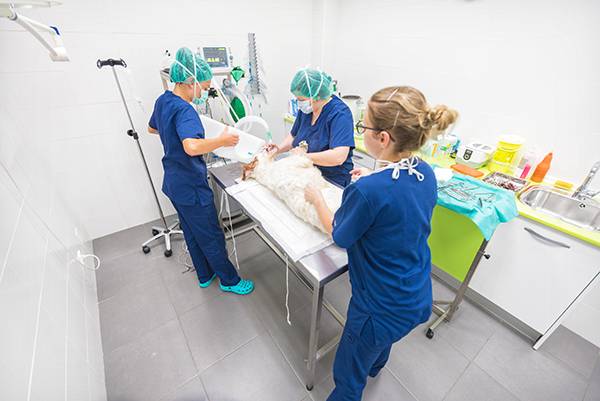If you love animals but aren’t planning on going to veterinary school, becoming a vet assistant is a great way to make a real impact on pets’ lives. Veterinary assistants play a vital role in animal healthcare, supporting veterinarians, veterinary technicians, and laboratory animal caretakers in everything from daily tasks to critical care.
What Does a Veterinary Assistant Do?
Vet assistants are essential members of any veterinary clinic or hospital team. They may help during surgeries, provide comfort to sick animals, and assist in collecting lab samples. Licensed veterinary technicians typically perform more advanced duties such as taking X-rays and administering medications, while assistants focus on supportive tasks.
A vet assistant might bathe, feed, or restrain animals, clean surgical rooms, and sterilize equipment. In some practices, vet assistants collect urine or stool samples—particularly if they’ve been trained through a veterinary assistant program or have earned a veterinary assistant certification.
When you visit your local veterinary clinic, it’s usually the vet assistant who first welcomes you and your pet, weighs your animal, takes vital signs, and records health concerns for the veterinarian. They also work behind the scenes with veterinary technicians and laboratory animal caretakers to ensure hospitalized animals are safe, comfortable, and receiving proper care.
Experience & Skills Needed for Veterinary Assisting
Working in veterinary assisting means you’ll need compassion, patience, attention to detail, and the ability to follow instructions from veterinarians and credentialed veterinary technicians. Most employers require a high school diploma, although enrolling in a vet assistant program, like Animal Behavior College, can boost job prospects and prepare you for a career in veterinary medicine.
Some vet assistants pursue a career ladder, eventually becoming a licensed veterinary technician, senior veterinary technician, or a credentialed veterinary technologist. Others explore similar jobs such as an emergency veterinary assistant.
2024–2025 Veterinary Assistant Statistics
1. Average Salary
As of early 2025, the average salary for a veterinary assistant in the U.S. is around $33,979, or $16 per hour. Your income will depend heavily on experience and location.
2. Salary Variations by State
Salaries vary by state. In California, vet assistants earn approximately $37,479 annually, while Florida sees averages closer to $32,280.
3. Employment Growth
According to the Occupational Outlook Handbook and other labor statistics, demand for vet assistants continues to grow, driven by rising pet ownership and expansion of services like mobile and emergency care. Additional positions, including overnight emergency veterinary assistant roles, are also increasing in specialized practices.
4. Experience-Based Salary Progression
Your salary will increase with experience:
- Entry-Level (0–1 year): ~$29,000+
- Mid-Level (2–4 years): ~$32,621
- Senior-Level (5–8 years): ~$33,797
- Expert-Level (8+ years): ~$36,085 with some states paying over $48,000 or more!
Pros of Becoming a Veterinary Assistant
Here are some benefits of choosing a veterinary assistant career:
- Daily interaction with animals—including dogs, cats, and exotic pets.
- Hands-on experience in medical procedures and animal care.
- Opportunities for continuing education and career growth.
- Flexibility with full-time and part-time scheduling.
- The chance to support veterinarians, veterinary technicians, and other professionals.
- Being a valued part of the animal healthcare team.
- Making a real difference in animals’ lives.
- It’s an exciting environment, you’re always learning and your day is unpredictable (in a great way)!
Cons of Being a Veterinary Assistant
As rewarding as the career can be, there are also challenges:
- Salaries are lower than those of veterinary technicians, vet techs, and veterinarians.
- You’ll encounter distressing situations, such as very ill or injured animals.
- The work can be physically and emotionally demanding.
- Exposure to unpleasant odors and messes is common.
- Advancement may require further education or a transition into roles like AVA -Approved Veterinary Assistant, licensed veterinary technician, or senior veterinary technician.
Should You Become a Veterinary Assistant?
If you have a passion for animals, patience, and a willingness to work under supervision, a vet assistant career could be the perfect entry into the animal healthcare field. Whether you aim to stay in support roles or eventually transition into veterinary technician or veterinary technologist careers, there are plenty of paths to grow in the industry.
Learn more about how a veterinary assistant program can prepare you for a fulfilling job that truly makes a difference in every patient’s life.



